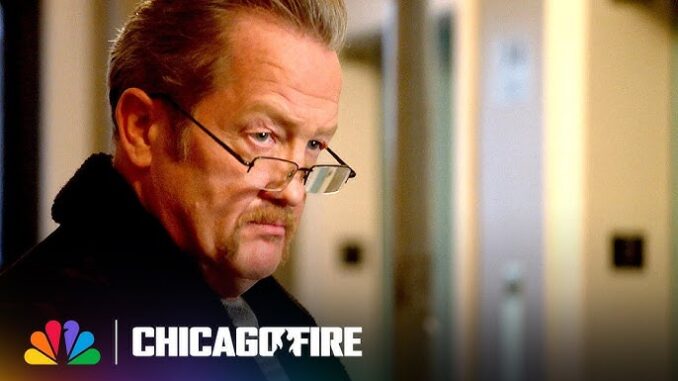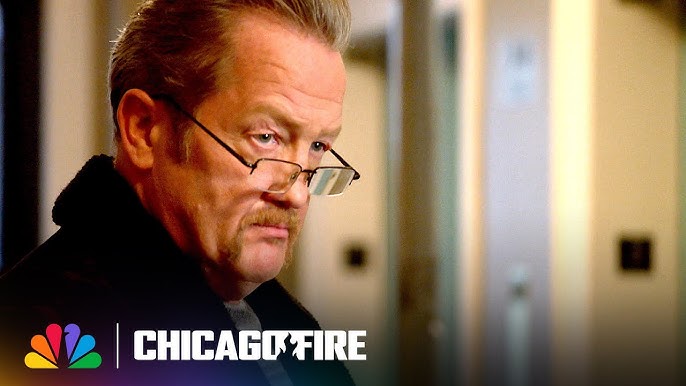
The Anchors and Earthquakes of Firehouse 51: When Familiarity Fails
The world of television, for its most devoted followers, transcends mere entertainment. It morphs into a parallel reality, its characters becoming extensions of our own chosen families, their homes as familiar as our own. Few shows embody this immersive connection quite like Chicago Fire, where the grit and camaraderie of Firehouse 51 forge an unbreakable bond with its audience. So, when the foundations of this cherished world are threatened—when a beloved veteran’s future hangs in the balance, or the very existence of the firehouse itself is questioned—the reaction isn’t just curiosity; it’s a visceral wave of panic that ripples through the fandom, proving just how deeply invested we become.
The question, “Is Randall McHolland Leaving Chicago Fire?” sends a particular chill down the spines of viewers. Mouch, as he is affectionately known, isn’t just a character; he’s the grizzled comfort, the sardonic wit, the napping philosopher of Engine 51. He represents the immovable, the steadfast, the old guard. His presence is a grounding force, a constant amidst the chaos of calls and the revolving door of new recruits. Mouch is the veteran whose cynical observations often hold profound truth, the man whose loyalty to his colleagues is as unwavering as his dedication to his “Mouch-couch.” The thought of his departure isn’t merely the loss of an actor; it’s the prospect of a gaping hole in the fabric of the firehouse, a piece of its very soul ripped away.
For years, Mouch has toyed with retirement, faced near-death experiences, and contemplated the sunset of his illustrious career. Each instance, whether a plot device or a genuine moment of character development, has triggered a collective gasp across living rooms and social media feeds. The panic stems from the understanding that Mouch isn’t just a character who works at Firehouse 51; he is Firehouse 51 in many ways. His departure would signal a fundamental shift, an acknowledgement that even the most enduring constants can eventually fade. It’s a reflection of our own anxieties about change, about the inevitable march of time, and the fear of losing those who make our worlds feel safe and familiar. To lose Mouch would be to lose a piece of the show’s beating heart, an anchor cut loose from the harbor.
Adding to this personal apprehension, the headline “Engine 51 Shutdown Sparks Panic md11” hits with the force of an actual emergency. This isn’t about an individual character; it’s an existential threat to the entire premise of the show. Firehouse 51 is more than a building; it’s a sanctuary, a home, a crucible where heroes are forged and family bonds are tested. It’s the sacred ground where Stellaride’s love story unfolded, where Casey and Severide forged their brotherhood, and where countless lives have been saved, both by the firefighters and within its walls.
The idea of Engine 51 being shut down—whether due to budget cuts, political maneuvering, or an insuperable bureaucratic obstacle—is an assault on the very identity of the series. It implies the scattering of its beloved ensemble, the dissolution of the family we’ve come to cherish. The panic it sparks is deep and visceral because it threatens to pull the rug out from under not just the characters, but the viewers who have invested years in their stories. Where would they go? Would the family unit survive? The show has often used threats to the firehouse as dramatic tension, but the spectre of a complete shutdown is a different beast entirely, promising an earthquake that could shatter the entire landscape of the One Chicago universe.
In essence, both Randall McHolland’s potential exit and the looming shutdown of Engine 51 tap into the same deep well of audience concern: the fear of loss and the resistance to fundamental change. They are not merely plot points; they are litmus tests for the show’s enduring strength and the emotional investment of its fan base. The panic these scenarios incite is a testament to the powerful illusion of reality that Chicago Fire masterfully creates. It reminds us that while we know these are fictional narratives, the connections forged with these characters and their home are anything but. And in those moments of genuine anxiety, we understand that Firehouse 51, with all its triumphs and tribulations, has truly become a home for us all.
